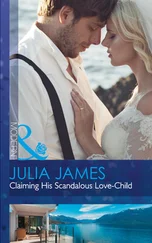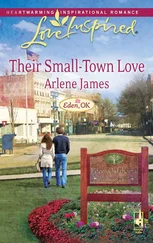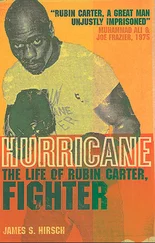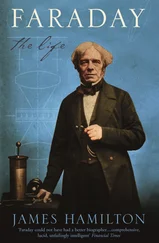“I can’t imagine a point in my life when I would not love you,” Robert says, looking down at his bowl.
Robert and Violahave dinner with Trey and his date at a new restaurant. All we ever do is go to new places, Viola thinks. The constant churn of the new. Once, newness was invigorating. Now, I am not sure if I could identify the difference between one new place and another.
“Nice to meet you,” Viola says to Trey’s date.
“Oh, we’ve met before,” she says. “Viola, right?”
At the restaurant everyone around them seems to be talking about the secret law. “We are surrounded by enemies,” says one older man sitting to Viola’s right.
“The forces of disorder in all of its many forms,” says his companion.
“Increasing disorder is the fundamental state of the universe,” says a loud young man, several tables away. “Certain actions are necessary to prevent the encroaching of disorder — sometimes horrible actions — actions, that were they publically known, might themselves increase disorder. Actions which must therefore remain concealed. This is the particular insight of the secret law.”
“Jesus,” says Viola.
“Robert tells me that there’s an FBI agent at your library these days,” Trey says.
“I’m not allowed to talk about it,” Viola says.
“NSL?” says Trey. Viola makes a zipping motion over her lips.
Appetizers arrive, in a series of small beautiful bowls.
“I am an optimist,” Trey declares. “I believe in the basic goodness and order of the universe.”
“So you are against the secret law?” Robert asks.
“I believe in the disease theory of crime,” Trey says. “Containment, education. Ultimately, I think, we’ll find biological bases for most forms of criminality.”
“No free will?” Viola asks.
“Why would you want it?” Trey says, his chopsticks hovering above the bowls.
Somewhere around the main course Viola and Robert end up in a fight. No one is sure how it happens, not even Robert and Viola. They are fighting about the secret law, which Robert is in favor of and Viola opposes, except that really they are fighting about the fact that Robert suspects Viola is having an affair.
“Where do you think we’d end up, if anyone could do just anything and not have to worry about the consequences?” Robert says.
“I’m not saying there shouldn’t be consequences,” Viola says. “I’m saying that there shouldn’t be terrible, unforeseeable consequences, carried out in secrecy by men who officially do not exist.”
They are still fighting during the drive home.
“I’m not choosing to feel the way I feel in order to hurt you,” Viola says.
“You know what I think?” Robert says. “I think you like the drama of it. I think instead of dealing with your actual feelings you’ve decided to make this into some big relationship drama.”
“My ‘actual feelings,’” Viola says, making it clear from her tone that she finds the phrase suspect. “I don’t like seeing a therapist, Robert. But I am. Because I am an adult. And I am swallowing my pride and dealing with my ‘actual feelings’ and my mental fucking health like an adult.”
“I’m fine,” Robert says. “I’m not the one who’s — I’m fine.”
They pass adult stores, a mostly abandoned mall, kids too young to still be out walking along the soft shoulder of the road.
“Who are you fucking?” Robert says.
“Robert, Jesus.”
“If you want to leave you should just leave.”
So Viola leaves. She throws open the door at a stoplight and pushes herself out of the car just before the light turns green. Robert is so angry that he accelerates anyway, and drives two blocks with the passenger-side door open. He thinks, I could just drive off. He thinks, She wants to leave, I should let her leave. She can find her own way back. She has a cell phone. He thinks, she has made the decision to jump out of our car in some shitty post-industrial part of town, she’s an adult, she can deal with the consequences of that decision.
Robert slows to a stop, leans over to close the passenger-side door, and takes a series of deep breaths. None of the breaths seem as deep as they should be. It’s like his lungs catch at a certain point and won’t go any further, just before he’s finished breathing all the way in.
He circles back to find Viola.
There’s a motion under a billboard, near where she ran from the car. Robert parks and opens his door and calls out to see if it’s Viola. A moment later there’s a loud crack that sounds exactly like how gunshots sound on television. It takes Robert a moment to realize that the sound was, in fact, a gunshot. Someone runs off into the darkness.
There is a terrible feeling in Robert’s stomach. He can make out another figure underneath the billboard. It’s still moving. Robert runs towards the billboard. He tells himself that it can’t possibly be Viola. It isn’t. “Thank God,” Robert says, out of breath.
“I don’t think I’m going to be okay,” says the man lying on the ground.
“I’m going to call the police,” Robert says. “I thought you were my wife. But I’m going to call the police.”
“I don’t think I’m going to be okay,” the man says. “I’m not going to be okay, am I?” The man is middle-aged, white, well-dressed, with a thick white beard and fat red face. He looks like Santa Claus. He’s lying on his back, clutching at his abdomen.
Robert dials 911 and gives his location. “There’s a man here. I think he’s been shot. I’m pretty sure he’s been shot. I’m not supposed to move him, am I?”
The operator tells Robert not to move him.
“I was pretty sure I wasn’t supposed to move him.”
“Are you alright, sir? Are you in a safe location?”
Robert thinks about this for a moment. “Oh, God,” he says, and then starts yelling for Viola. “I’m sorry,” he says to the operator. “I have to make another call.”
Viola answers on the first ring. “What’s going on?” she asks. “Why haven’t you been answering your phone? What’s going on? Are you alright?”
“Where are you?” he says. “Can you see the car?”
Robert is ina small room at the police station. There are two police officers in the room with him, one small, squat, somehow feminine, the other quite a bit larger and vaguely Slavic looking. They keep asking if Robert would like a cup of coffee. It’s nearly one and Robert is visibly shaking. He would not like a cup of coffee, not really.
“We’re pretty sure you’re not our guy,” the more effeminate officer tells him.
“Good,” Robert says. “That’s good. Especially since you’ve already told me I’m not under any suspicion.”
“For one thing, what motive could you possibly have? For another thing, what did you do with the weapon?” The officer stares at Robert as if waiting for an answer.
“Was that a question?” Robert says, after a moment.
The officer laughs and clasps his hands together. “Oh, you’re good. You’re not going to just walk into a setup like that, are you, Mr. St. Clair? He’s good, Ivan.”
“He said he was a lawyer, didn’t he?” says the second, larger officer. “They’re slippery.”
“I’m not under any suspicion, right?” Robert says. “I thought I wasn’t under any suspicion.”
“At this stage in the process,” says the first officer, “we are simply trying to establish that this shooting followed the same MO as the previous shootings. You, as an eyewitness, can help us establish that. You look like you could use a cup of coffee. Ivan, could you please get Mr. Robert St. Clair a cup of coffee?”
Читать дальше
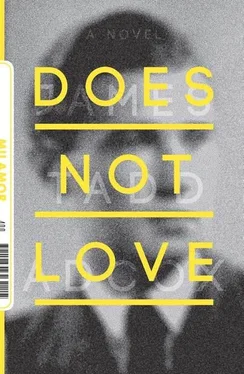

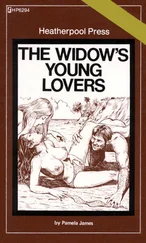
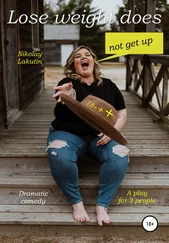
![Jakob Wassermann - Issue Does Not Exist],errors:{](/books/585068/jakob-wassermann-issue-does-not-exist-errors-thumb.webp)
